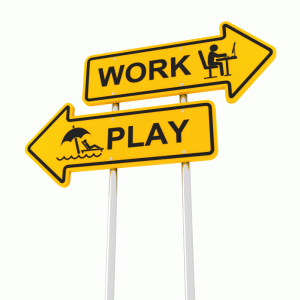Join our online community and be inspired to achieve your goals!
VIEW OUR FACEBOOK PAGE10 Tips for Work Life Balance

If you run your own business, you’ll know it provides the flexibility to work your own hours, but often we end up working harder and longer than ever before. Finding a balance between work and life can be challenging and the perfect situation is different for everyone, however with a little effort, it can be done! Here are some general tips to get you started:
TIP # 1 – Decide what’s important to you. Working less doesn’t mean better work life balance for everyone. So long as you are happy with the amount of time you dedicate to each part of your life, you’ve probably achieved your best version of work life balance. Decide on your priorities. What would you like to do more (or less) of? Think about what you need to focus on and try to eliminate the stuff that doesn’t really contribute to that.
TIP # 2 – Establish working hours. Set boundaries for yourself and others. If you work from home, try to walk away from your office space at a set time every day. And if you work in an office – try not to take work home unnecessarily. Of course, unplanned events do occur but finishing up at a set time every day to spend planned time with family or friends is a good idea. Likewise, make sure friends and family know not to interrupt you at work unless it’s an emergency. For most people, it would take a big personal emergency to reschedule something important for work. Give your personal time the same respect and try not to ‘reschedule’ it unless absolutely necessary.
TIP # 3 – Switch off your phone, your laptop, and your tablet – anything that’s keeping you connected to work so you can spend time doing whatever it is you would like to do. If you’re spending time with your family or partner this is especially important. We need time to focus on personal relationships. Even if you just switch off for an hour or a meal, try to do this every day. Turning off technology allows us to give people our undivided attention for short periods of time which goes a long way towards improving work life balance.
TIP # 4 – Track Your Time. Not all the time, but try it for just a few days. Tracking how much time is spent on tasks opens our eyes to opportunities for time savings. Then eliminate things that aren’t productive, delegate where you can or consolidate – often we do things without actually thinking about whether it’s 100% necessary.
TIP # 5 – Try to schedule ‘time off’. This includes holidays and weekends. At a minimum you should try to schedule two weeks off each year and try not to work on weekends. This doesn’t mean you need to book an expensive holiday. Some of the best holidays I’ve had have been ‘staycations’. Stay at home and enjoy what your local area has to offer. We often get so caught up in our day to day work that we miss all the fun stuff right under our noses. Time off helps you feel refreshed and recharged and will contribute to you achieving your best levels of productivity.
TIP # 6 – Schedule something enjoyable every day. For me that’s exercise most days. If that’s not for you, schedule something else you enjoy doing. Even if it’s just a quick walk or coffee catch up with a friend or colleague, some gardening, cooking, pottering in your workshop, or reading a book. It could simply be some quiet time to yourself doing nothing – it certainly doesn’t need to be expensive or time-consuming.
TIP # 7 – Look after yourself. Not eating well, getting enough sleep, keeping hydrated and making sure you get enough exercise are all factors that affect your ability to achieve work life balance. Getting good nutrition and exercise will help you feel happier and achieve higher levels of productivity in the longer term.
TIP # 8 – Don’t sit still. Aim to get up from your desk at least every two hours. Try to do it before your concentration wanes and your attention flags. Get up, have a stretch, grab a glass of water, take a quick walk around the block for some fresh air – just do something that gives you a break from working and clears your head for the next task.
TIP # 9 – Say no! You don’t need to be ‘available’ for work all the time and you don’t have to say YES to everything. Learn to say NO sometimes and feel more in control.
TIP # 10 – Consider a change. If your job is so stressful and draining that you can’t change the way you’re feeling about balance, it might be time to start thinking about a career move.
Studies show that a poor work-life balance can cause stress, unhappiness, and reduced productivity. Implement some (or all) of our tips and start working to live instead of living to work today.
If you would like personalised help from a Career Coach to evaluate alternative career options to achieve a better work life balance, please see our Career Counselling and Coaching Services.





